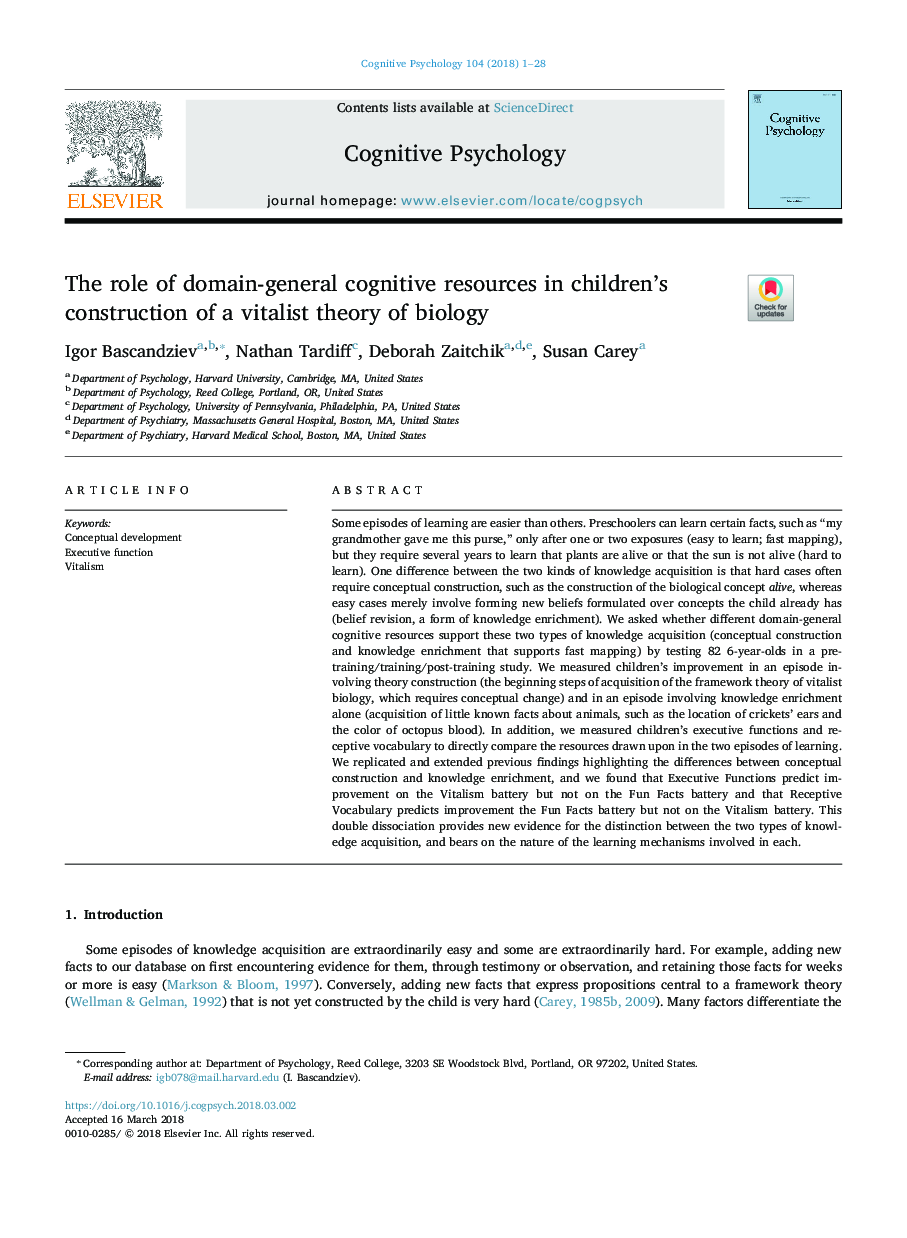| Article ID | Journal | Published Year | Pages | File Type |
|---|---|---|---|---|
| 7272579 | Cognitive Psychology | 2018 | 28 Pages |
Abstract
Some episodes of learning are easier than others. Preschoolers can learn certain facts, such as “my grandmother gave me this purse,” only after one or two exposures (easy to learn; fast mapping), but they require several years to learn that plants are alive or that the sun is not alive (hard to learn). One difference between the two kinds of knowledge acquisition is that hard cases often require conceptual construction, such as the construction of the biological concept alive, whereas easy cases merely involve forming new beliefs formulated over concepts the child already has (belief revision, a form of knowledge enrichment). We asked whether different domain-general cognitive resources support these two types of knowledge acquisition (conceptual construction and knowledge enrichment that supports fast mapping) by testing 82 6-year-olds in a pre-training/training/post-training study. We measured children's improvement in an episode involving theory construction (the beginning steps of acquisition of the framework theory of vitalist biology, which requires conceptual change) and in an episode involving knowledge enrichment alone (acquisition of little known facts about animals, such as the location of crickets' ears and the color of octopus blood). In addition, we measured children's executive functions and receptive vocabulary to directly compare the resources drawn upon in the two episodes of learning. We replicated and extended previous findings highlighting the differences between conceptual construction and knowledge enrichment, and we found that Executive Functions predict improvement on the Vitalism battery but not on the Fun Facts battery and that Receptive Vocabulary predicts improvement the Fun Facts battery but not on the Vitalism battery. This double dissociation provides new evidence for the distinction between the two types of knowledge acquisition, and bears on the nature of the learning mechanisms involved in each.
Related Topics
Life Sciences
Neuroscience
Cognitive Neuroscience
Authors
Igor Bascandziev, Nathan Tardiff, Deborah Zaitchik, Susan Carey,
